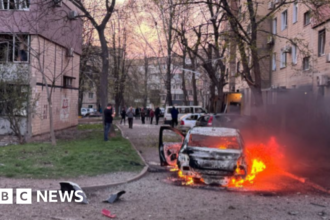Transparency International-Georgia, a local corruption watchdog released a detailed report that describes the situation in four areas of democracy: corruption, the judiciary system, parliamentary oversight and the media environment for the last four year period 2020-2024.
The watchdog stated that “ahead of the crucial parliamentary election, the democratic condition in the country has deteriorated alarmingly.” It added, “The state capture process has continued and intensified, impunity for high level corruption has reached kleptocracy levels, clan rule has been further reinforced in the judiciary, parliamentary oversight remains a formality, and a hostile environment for critical media has been created. Journalistic activity has also become dangerous.”
Below are TI Georgia’s key findings on four different areas.
Anti-Corruption
The watchdog said that state capture had been “confirmed and continued” and that it had “deepened.” It referred to the problem of high level corruption, pointing out signs of kleptocracy.
The report mentions that the Anti-Corruption Bureau was supposed to fight the corruption. However, “it couldn’t be an effective [body] because it became captured institutions.”
TI-Georgia criticizes Georgian government as well for failing to implement anticorruption reforms demanded by the European Commission (EC) and Venice Commission.
Judiciary
The report highlights “clan rule” within the judiciary which is controlled and dominated by the government. The report noted that U.S. sanction against members of the clan had “shown how deeply the influential lawyer group is entrenched with corruption.” According TI Georgia the judiciary was used by the Government to prosecute peaceful demonstrators, politicians and media critics.
The US State Department’s imposition of sanctions on judges – key figures of the “clan”, as they are known – has revealed the extent of corruption within a group influential judges who control the whole judicial system. The watchdog argues that the government has refused the necessary EU reforms relating to the judiciary.
Parliamentary Oversight
According to the watchdog’s findings, parliamentary oversight is primarily focused on the implementation of narrow political interests and not critical issues like corruption.
23/02/2024: Watchdog: Government Action plan insufficient to strengthen parliamentary oversight of security sector
The report states that “During the Covid Pandemic, Parliament refused to exercise its oversight over the executive branch.” The report notes that the parliamentary oversight of the security sector was essentially “formal”. The watchdog says that the majority in the parliament has also created “artificial obstacles” to prevent opposition officials from exercising their oversight function.
Media
The watchdog also points out alarming cases of violent attacks and massive violence against journalists. These cases can sometimes result in death, and criminal proceedings are brought against media owners and founders who criticize the media.
“The use of the judiciary, the Communications Commission and other government-subordinate structures against the critical media is alarming,” TI-Georgia says.
The report also cites as “particularly dangerous”, several norms and laws which have made the work and life of journalists more restrictive.
The Daily Beat: Sunday, 8 October
MFRR and Partners of the CoE Platform for Journalists’ Safety Issue Critical Interim Results
The Daily Beat: Tuesday, 2 October
Anti-Corruption Bureau Removes TI-Georgia from “Political actor” Status on PM’s Request
Read More @ civil.ge












